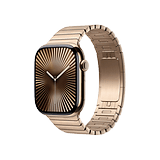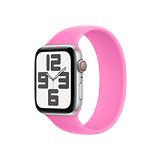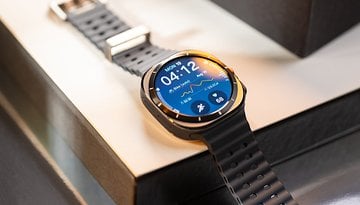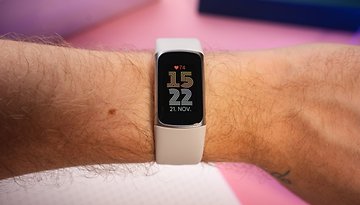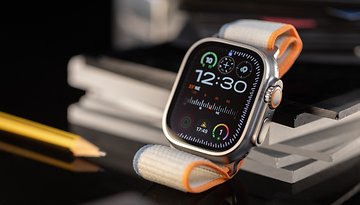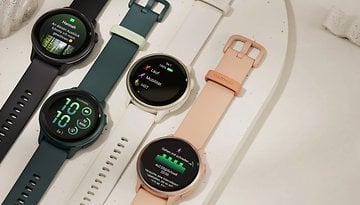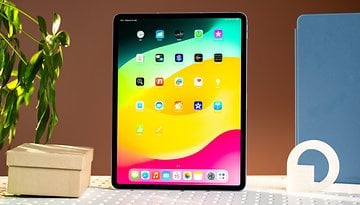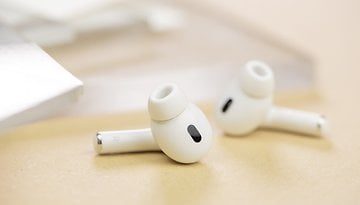Top Apple Watches Ranked: Which One is Right for You?
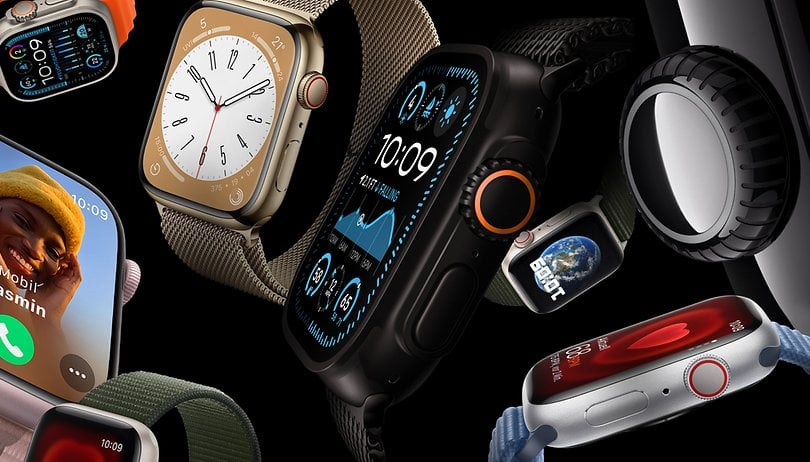

If you own an iPhone, opting for an Apple Watch is an excellent way to maintain a seamless experience within Apple's ecosystem. The best choice is typically the latest model available. But the real question is: which one suits you best? Are you a perfect fit for the Apple Watch Ultra 2? Perhaps the Apple Watch Series 10? Or maybe the Apple Watch SE is the ideal match? Let’s find out.
The Best Apple Watch Models to Buy in 2025
| Pro tip | Editor's choice | The affordable option | |
|---|---|---|---|
| Model | |||
| Picture | 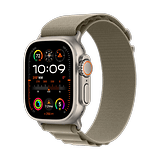 |
 |
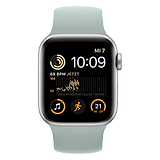 |
| Review |
|
|
|
| Overview |
|
|
|
| Key specs |
|
|
|
| Deals |
|
|
|
1. Apple Watch Ultra 2: The Ultimate Fitness Companion
The Apple Watch Ultra series is Apple’s flagship smartwatch, designed for outdoor enthusiasts and extreme conditions. It’s also the brand’s largest model—meaning it may not be ideal for all wrist sizes. While the Ultra 2 offers a bigger battery and lasts longer than the Apple Watch Series 10, its endurance still falls short of dedicated sports watches, with an estimated battery life of around 36 hours.
A standout feature is the customizable Action Button, which enhances functionality. The watch is EN-13319 certified, making it a reliable tool for divers, and includes a depth gauge through the Oceanic+ app. Adventurers will also appreciate the loud siren for emergencies in nature, along with essential safety features like Emergency SOS and accident detection.
For outdoor users, the redesigned crown ensures ease of use—even when wearing gloves. The Ultra 2 also supports gesture controls and on-device Siri voice commands, creating a more seamless experience.
As a premium model, the Apple Watch Ultra 2 starts at $799. It’s available in two color options and comes exclusively in a GPS + Cellular variant. Additionally, users can choose from a range of specially designed wristbands tailored for outdoor adventures.
Good
- Chic, indestructible design
- Very nice, super bright display
- watchOS 10 is really fun to use
- Extremely accurate fitness tracking
- Multi-band GPS is now even more accurate
- Useful Double Tap gesture
Bad
- Still only two days of battery life
- Only one size and color available
- Charging is too slow
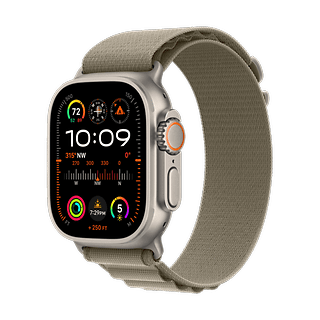
2. Apple Watch Series 10: The Best All-Around Pick
The Apple Watch Series 10 is the go-to model for Apple fans, offering a well-balanced experience—neither too extreme nor too basic. It’s lightweight, available in a variety of colors—gold, gray, and silver—and comes in multiple sizes, showcasing Apple's commitment to diversity.
For phone calls, the Series 10 features integrated voice isolation, making conversations clearer even in noisy environments. It includes an Always-On Display, but its biggest drawback remains battery life, which lags behind the competition. Expect to charge it daily—though, on the bright side, it recharges quickly.
- Also interesting: Top 10 things you should know about Apple Watch
On the software front, the Series 10 runs watchOS 11, which enhances health monitoring features. One notable addition is its ability to detect signs of sleep apnea during sleep tracking and alert users if they stop breathing—Apple states that medical approval for this feature is forthcoming.
The watch also boasts a wide range of workout modes, and thanks to seamless ecosystem integration, it can function as a controller for various iPhone apps or even as a standalone device for music playback.
Good
- Up to 2,000 nits, better viewing angles
- S10 chip: Faster, more powerful, more responsive
- New function: integrated sleep apnea detection
- Quick charge: 30 minutes for 80%
- Old wristbands and chargers compatible
- Water sports: depth and temperature measurement, tide predictions
Bad
- Limited battery life with intensive use
- Minimal differences to the Apple Watch 9
- No Android support, iPhone required
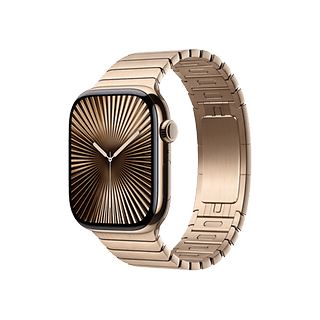
3. Apple Watch SE (2022): The Budget-Friendly Choice
The Apple Watch SE is expected to receive a new variant in 2025—likely in September, based on Apple's usual release cycle. So, should you still invest in the current model? Personally, I’d recommend waiting. However, if you’re not particularly concerned with having the latest features, the SE remains a solid choice and will continue to serve you well for years to come.
As a budget-friendly option, the Apple Watch SE delivers the core Apple Watch experience but lacks advanced health features like ECG, blood oxygen measurement, and sleep apnea detection. However, it does include essential safety features such as Emergency SOS and accident detection.
Despite its lower price point, the Apple Watch SE still offers a wide range of workout modes. Thanks to its seamless integration with the Apple ecosystem, it can function as a controller for various iPhone apps or even as a standalone device for music playback.
Good
- Wears great on the wrist
- Seamless integration with the iPhone
- Offers core Apple Watch features
- A wide range of fitness features
- Integrated GPS (you can leave the iPhone at home)
- 3 months of Fitness+ included
- Affordable price
Bad
- 90 minutes to charge from 0 to 100%
- Power adapter not included in the box
- No dust-resistant rating
- No Always-on Display (AoD)
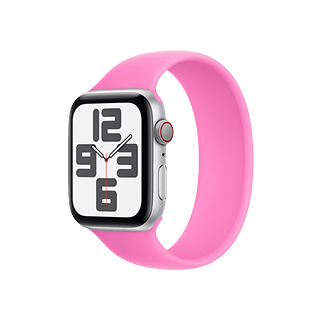
Key Criteria for Selection
In compiling this list of the best Apple Watches, our team has personally tested the top recommendations. As always, our guide offers a high-level overview of key features, but I highly recommend checking out our in-depth reviews before making a purchase.
For this Apple-focused selection, we primarily considered iPhone owners. However, if you're open to exploring other smartwatch options compatible with your iPhone, I encourage you to check out our broader best smartwatches list to determine if an Apple Watch is truly the right fit for you.
- Also interesting: The 4 best fitness trackers to buy in 2025
How We Chose
Our main focus? User experience (UX). If you're already in the Apple ecosystem, the Apple Watch lineup integrates effortlessly via the Apple Watch app, ensuring a smooth and intuitive experience. The app offers extensive customization, a built-in user guide, and automatic syncing of compatible apps from your iPhone.
Beyond reliability, Apple's smartwatch connectivity is intelligent and responsive—if an issue arises, your watch can instantly open the necessary settings in the Apple Watch app for quick troubleshooting. Plus, with direct App Store access, discovering and installing apps right from your wrist is seamless.
Why We Skip Older Models
We only recommend current Apple smartwatches—because, frankly, outdated models just don’t make sense. Take the Apple Watch Series 9 (review), for example—it’s still available from third-party retailers at prices that closely match newer flagship models. If you find it fits your budget, go for it! Just be sure to review Apple’s update policies and ongoing privacy and security support before committing.
Got Questions?
If you need more details about any of the watches mentioned—or if you're torn between options—send us a message! We'll get back to you with answers as soon as we get the chance.
Apple Watches Compared
| Flagship | All-around pick | Entry-level model | |
|---|---|---|---|
| Model | |||
| Picture |  |
 |
 |
| Price |
|
|
|
| Size |
|
|
|
| Display |
|
|
|
| SiP |
|
|
|
| Sensors |
|
|
|
| Health and Wellness |
|
|
|
| Connectivity |
|
|
|
| Storage |
|
|
|
| Deals |
|
|
|

